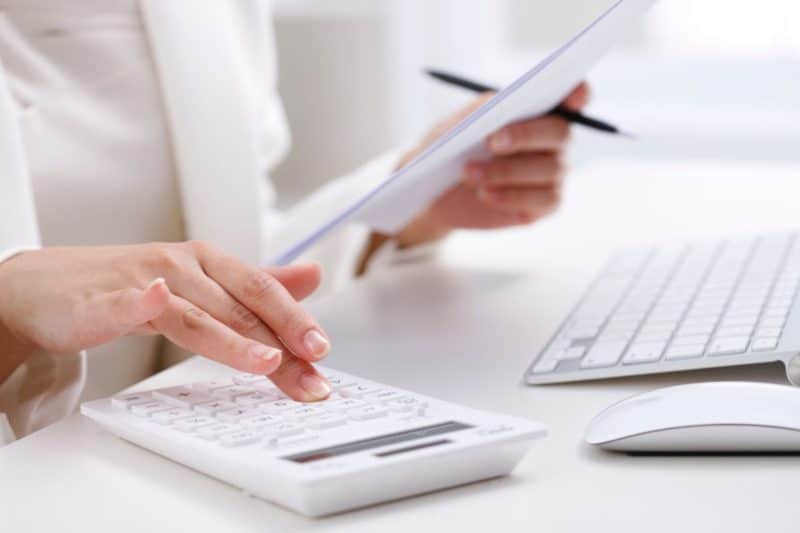There are several reasons to want to calculate your land value yet the overarching one is typically for tax purposes. Before you do so, there are a couple of factors to consider first.
The first is the purchase price which includes the price of the land with the price of improvements, including a house that is built on it.
This purchase price may not be included in the sales and purchase agreement as only the final closing price is included on real estate contracts.
When you do try to calculate the land value, it is also worth remembering that real estate is eligible for depreciation as the price of a property shifts. However, the land value is likely to be more stable and less likely to depreciate, if at all.
In this guide, we will look at how to calculate land value using three different methods. These include the assessed value, the appraised value, and the replacement value while we will also look at how to calculate the value of a plot of land.
What's Ahead...
Using The Assessed Value
When trying to calculate the land value, you can use the assessed value with the government acting as the appraiser. This should provide an official land value which is ideal for tax purposes.
The assessed value will be an approximation yet should present a fair estimate based on the market conditions at the time.
Let’s say you paid $100,000 for the house with the assessed value being $80,000 which includes $20,000 for the land and then a further $60,000 for those improvements which focus on the house. The assessed value of the land is 25% of the total value.
In this case, the value of the land is $20,000 / $100,000 for the combined total of the value of the land with the house. As the assessed land value is 25% of the total value, that assessed value will be $20,000 as 25% of the $100,000.
Using The Appraised Value
It is worth noting that the land value alone cannot depreciate though the value of the house (as improvements) can. In the appraised value, the appraisers who value assets decide on the land value as one of those measurements.
Anyone looking to get an appraised land value is typically ordered to get an appraisal done by a lender or a qualified appraiser. The land value involved in an appraiser’s opinion is also known as the site value.
Appraisers tend to look at the factors that determine a property’s value that include how the land is currently being used and the potential for how it could be used.
Vacant land can have several development options so the land value will be based on the most valuable option.
Using The Replacement Value
There is also the replacement value which can be used to calculate the land value. This calculation is typically used by insurers when they organize an individual’s financial planning.
Insurers are the ones that have a legal requirement to pay for what is known to be the ‘replacement cost’ of a property, or how much it would cost to replace a property if it is sufficiently damaged. That value should be included in an insurance contract.
For instance, if you purchase your home for $200,000 and the replacement value for your home is $140,000 then the land value is $60,000.
The land value is typically around 30% of the total value which includes the land and the value of the improvements, primarily the home.
How To Calculate Land Value – Valuing A Plot Of Land
The IRS themselves have provided some guidance on how to value a plot of land. As land can pretty much never depreciate in value, you need to work in the original purchase price which existed between the land and the building, such as a house.
The values from the tax assessor of a property can be used to work out of the value of a plot of land. An example could be that a property was bought for $100,000 which was above the current value as the purchase price.
The tax statement for the property states that the improvements (the house) were down to $60,000 (75%) and the land was $20,000 (25%) for a total value of $80,000.
The purchase price was $100,000 which can be multiplied by 25% to create a land value of $25,000.
Final Thoughts
Calculating land value can be tricky but it is worth noting that a piece of land should not depreciate in value.
The commercial building or the residential building built on it can fluctuate in value as it is bought and sold yet the land underneath should remain at the same value.
To find the estimated land value, you can work in the value of the improvements, likely the building or home, and then take that away from the purchase price which is perhaps one of the simplest methods.
Frequently Asked Questions
How Do You Calculate The Price For Land Per Square Foot?
To work out the price for land per square foot, you need to know what the land is being used for. If this is the value of vacant land then find out the price for the total land then divide it by size.
Let’s say the value of the land is estimated to be $10,000 for 1,000 square feet then each square foot is worth $10. Alternatively, if you have a 3,000-square-foot house that is selling for $400,000 then each square foot is worth $133.33 for each square foot.
Why Does Land Value Not Depreciate?
The value of land does not depreciate as land comes with an assumption that it has an unlimited useful life. A vacant plot of land can have multiple uses aside from simply building a property.
Also, a building can be demolished and a further one built on that same plot of land.
There are assets that are built into the value of a property that can be considered to have limited useful lives including building and land improvements which should be allocated to limited accounting periods.
Paul Martinez is the founder of BendingDestiny.com. He is an expert in the areas of finance, real estate, and eCommerce.
Join him on BendingDestiny.com to learn how to improve your financial life and excel in these areas. Before starting this blog, Paul built from scratch and managed two multi-million dollar companies. One in the real estate sector and one in the eCommerce sector.


